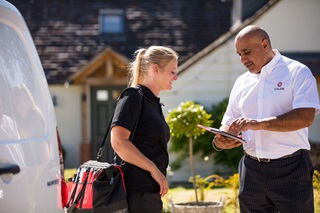
Your super-efficient energy all-rounder
Business LPG is the efficient and versatile way to power your business – wherever you’re based, and whatever industry you’re in. And since every company is different, we’ll help find the right business energy supply for you, deliver it reliably and stay close at hand for any help you need.

Making energy simple, flexible and reliable.
Visit our help centre, where you can find lots of frequently asked questions and helpful information.
*Table based on DESNZ (Department for Energy Security and Net Zero) Greenhouse gas reporting: conversion factors 2023.